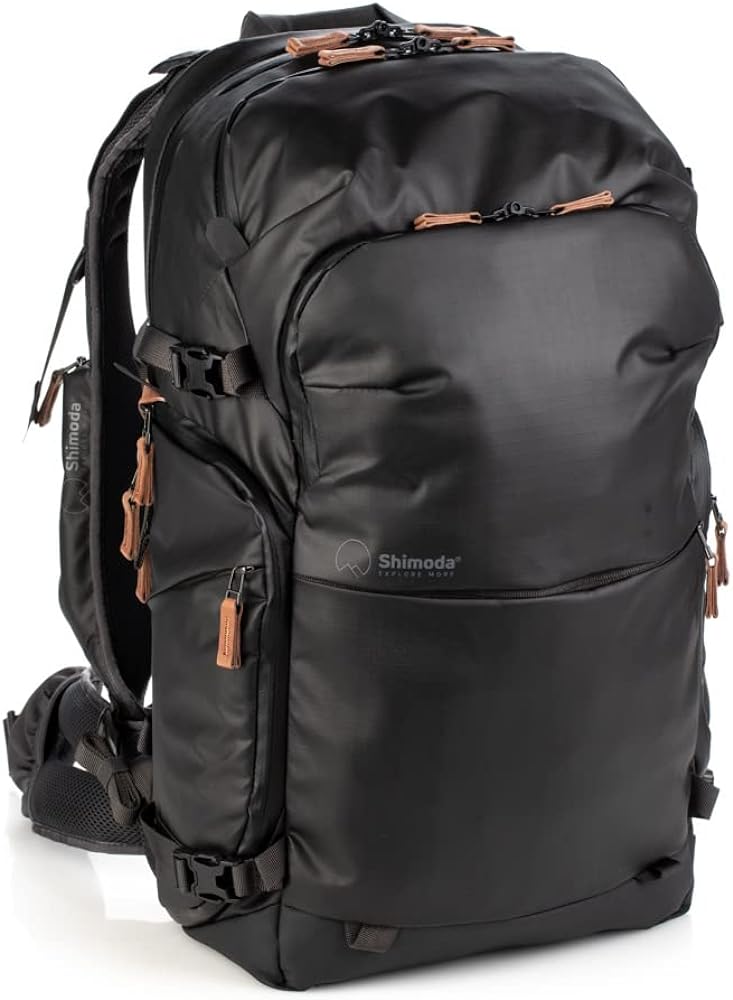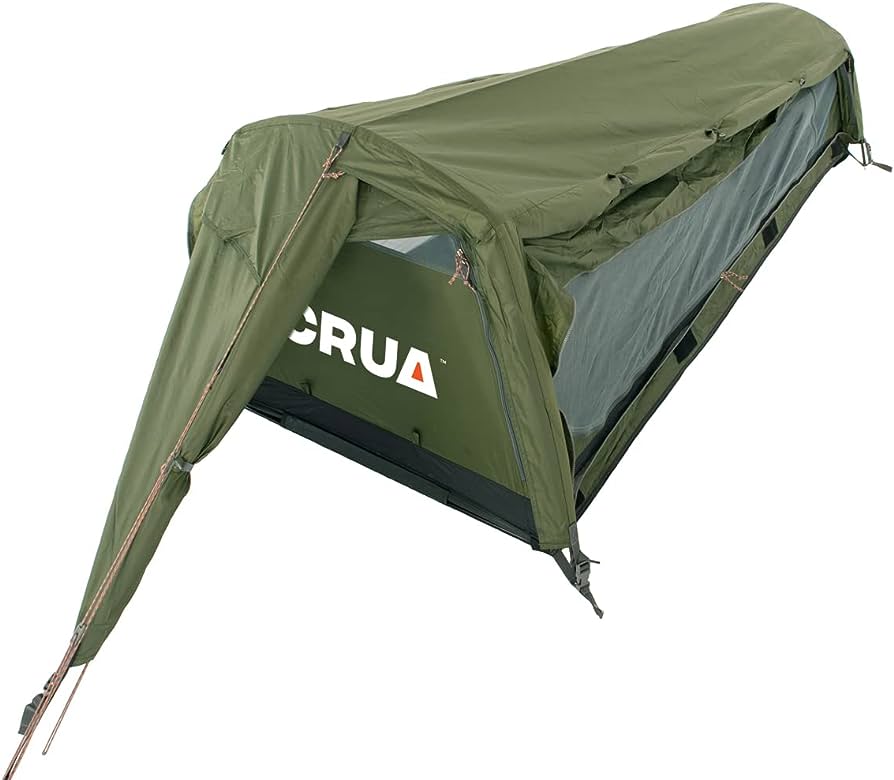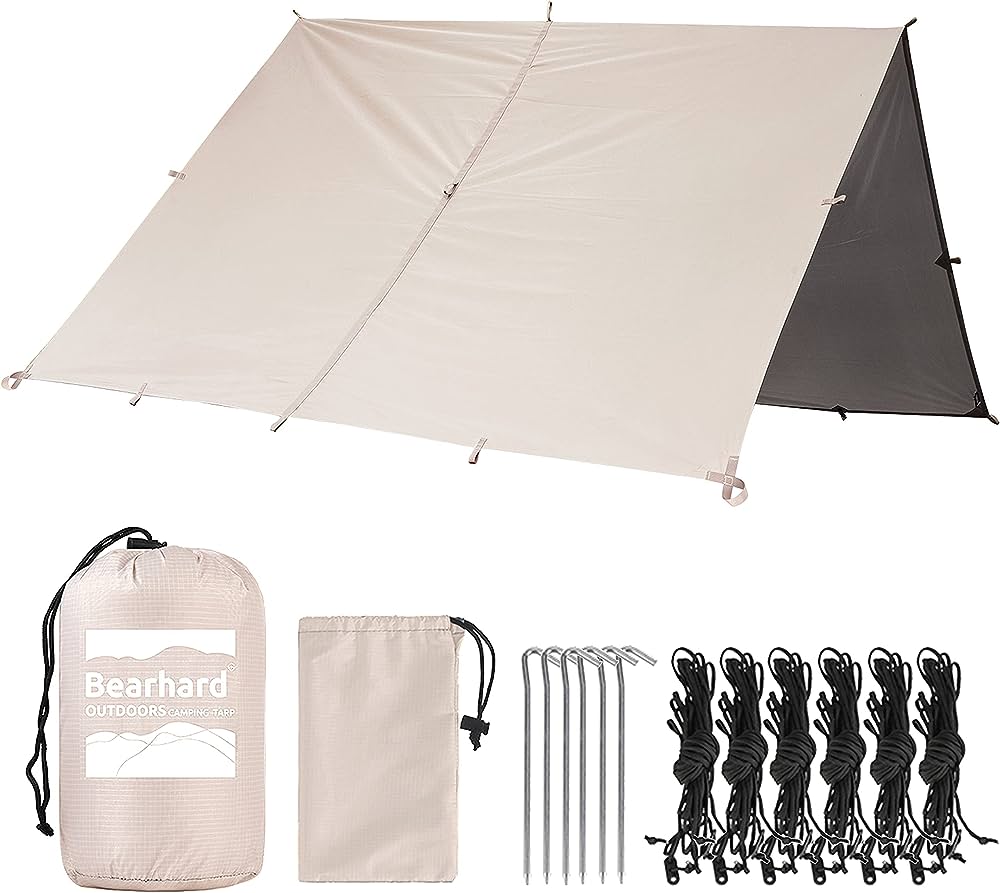- 8 Airplane Footrest Hammock!Travel comfortably - October 9, 2023
- top 7 Pool Float Water Hammock for a Relaxing Summer - October 9, 2023
- top 5 Space SaverSingle Hammock Stand Maximize Comfort and Space - October 9, 2023
Yes, you can use a regular backpack for hiking. However, it is important to choose a backpack that is designed for hiking to ensure maximum comfort, durability, and functionality on the trail.
A regular backpack may lack the necessary features such as support straps, ventilation, and waterproof materials that are essential for a successful hiking experience. Additionally, hiking backpacks are specifically designed to distribute the weight evenly and provide proper back and shoulder support, which is crucial when carrying heavy gear and trekking long distances.
Therefore, investing in a dedicated hiking backpack will enhance your overall hiking experience and ensure your safety and comfort in the great outdoors.
Pros Of Using A Regular Backpack For Hiking
When it comes to choosing the right backpack for hiking, many outdoor enthusiasts wonder if a regular backpack can handle the demands of the trail. While purpose-built hiking backpacks offer specialized features, there are several compelling reasons to consider using a regular backpack for your hiking adventures. In this article, we will explore the pros of using a regular backpack for hiking, including its versatility, affordability, accessibility, and familiarity.
Versatility: Suitable For Various Hiking Terrains And Activities
One of the main advantages of using a regular backpack for hiking is its versatility. These backpacks are designed to be multifunctional, making them suitable for various hiking terrains and activities. Whether you are venturing onto rugged trails or tackling moderate hikes, a regular backpack can effectively carry your essentials and provide the necessary support.
Regular backpacks come in different sizes and designs, allowing you to choose one that matches your specific hiking needs. Larger backpacks may be ideal for longer hiking trips, while smaller ones offer convenience for shorter day hikes. Additionally, regular backpacks often come with adjustable straps and compartments, giving you the flexibility to organize and pack your gear efficiently.
Affordability: Cost-effective Option For Beginners Or Occasional Hikers
Another advantage of using a regular backpack for hiking is its affordability. Purpose-built hiking backpacks can be quite expensive, especially those with advanced features and specialized materials. For beginners or occasional hikers who are not ready to invest a significant amount of money in hiking gear, a regular backpack provides a cost-effective option.
Regular backpacks can be found at various price points, making them accessible to hikers on a budget. While they may not offer the same level of durability or technical features as high-end hiking backpacks, they can still serve their purpose effectively. As you gain more experience and determine your specific hiking needs, you can always upgrade to a specialized backpack later.
Accessibility: Easy To Find And Purchase In Stores Or Online
Accessibility is another key advantage of using a regular backpack for hiking. Unlike specialized hiking backpacks that may require you to visit specific outdoor retailers or order online from limited suppliers, regular backpacks are widely available. You can easily find them in local stores, department stores, or online marketplaces.
The convenience of being able to physically see and try on a regular backpack before purchasing is invaluable. You can assess its size, weight, and comfort level to ensure it meets your requirements. With an extensive range of options and brands, you have the freedom to choose the one that suits your preferences and budget.
Familiarity: Comfortable And Familiar Design For Everyday Use
A regular backpack’s design is typically comfortable and familiar, making it an excellent choice for hiking. These backpacks are designed for everyday use, such as commuting, school, or travel, which means they are crafted with user comfort in mind. The shoulder straps, back padding, and weight distribution are often well-designed, allowing for better ergonomics during extended hikes.
Furthermore, regular backpacks offer a level of familiarity that can bring a sense of comfort to hikers. Since most of us have used regular backpacks for various purposes throughout our lives, using them for hiking feels natural and intuitive. You don’t need to spend extra time figuring out how to use the specialized features of hiking backpacks.
Cons Of Using A Regular Backpack For Hiking
While a regular backpack may seem like a convenient option for hiking, it is important to consider the downsides it entails. From limited capacity to inadequate comfort, using a regular backpack for hiking can pose several challenges that may impact your overall hiking experience. Let’s delve into these cons in more detail.
1. Limited Capacity: Smaller Size May Not Accommodate All Necessary Hiking Gear
Regular backpacks typically have a smaller size compared to specialized hiking backpacks, which limits their capacity to carry essential hiking gear. Whether it’s extra layers of clothing, hydration equipment, or emergency supplies, a regular backpack may fall short in providing the necessary space. This can cause inconvenience during longer hikes or when carrying equipment essential for safety purposes.
2. Lack Of Support: Insufficient Padding And Straps Compared To Specialized Hiking Backpacks
Support and comfort are crucial when it comes to carrying a backpack during hiking expeditions. Unfortunately, regular backpacks often lack the sufficient padding and adjustable straps that specialized hiking backpacks offer. The absence of these features can lead to discomfort, strain, and even potential injuries. It is essential to have proper support for redistributing the weight evenly across your body, especially when facing challenging terrains.
3. Inadequate Comfort: May Cause Discomfort And Strain During Long Hikes
When embarking on a long hike, comfort plays a vital role in ensuring an enjoyable experience. Regular backpacks, however, may not prioritize comfort. The absence of ergonomic design, breathable materials, and adjustable suspension systems can lead to discomfort, excessive sweating, and prolonged strain on your back and shoulders. This may result in fatigue, reduced endurance, and an overall unpleasant hiking experience.
4. Durability Concerns: Regular Backpacks May Not Withstand Rugged Hiking Conditions
Regular backpacks are typically not designed to withstand the rugged conditions often encountered during hiking trips. The materials used, stitching, and overall construction are not as robust as those of specialized hiking backpacks. This can lead to durability concerns, including torn fabrics, broken zippers, and compromised functionality. In extreme cases, a regular backpack may fail to withstand the demands of the hiking environment, leaving you without a reliable means to carry your gear.
While using a regular backpack for short, leisurely walks or day trips may be viable, relying on it for more challenging hikes can result in various drawbacks. To fully enjoy your hiking experience and ensure your safety, investing in a specialized hiking backpack is highly recommended. With their larger capacity, better support, enhanced comfort, and increased durability, hiking backpacks are purpose-built to meet the demands of outdoor adventures.
Factors To Consider Before Using A Regular Backpack For Hiking
Before embarking on a hiking trip, it’s important to choose the right backpack that suits your needs and the demands of the trail. While a regular backpack may seem like a convenient option, there are several factors to consider before deciding to use one for hiking. By evaluating the duration of the hike, the terrain, gear requirements, and personal comfort, you can make an informed decision about whether a regular backpack is suitable for your hiking adventure.
Duration Of Hike: Short Hikes May Be Manageable With A Regular Backpack
The duration of your hike plays a significant role in determining the backpack you should use. For shorter hikes that typically last a few hours, a regular backpack can often be manageable. These hikes generally require less gear and supplies, allowing you to carry a lighter load. A regular backpack with basic features like adjustable straps and compartments can offer enough space to accommodate essentials like water, snacks, and a lightweight jacket. However, for longer and more challenging hikes, it is wise to consider a backpack specifically designed for hiking to ensure proper support, weight distribution, and durability.
Hiking Terrain: Suitable For Moderate Or Less Challenging Terrains
The terrain of the hiking trail is another crucial factor to consider when deciding on a backpack. Regular backpacks are suitable for hikes on moderate or less challenging terrains such as well-maintained trails in parks or recreational areas. These trails often do not demand specialized gear or extensive equipment. With a regular backpack, you can comfortably carry necessities like sunscreen, a first aid kit, a map, and a camera. However, if your hike involves rugged terrains, steep ascents or descents, or unpredictable weather conditions, it is advisable to opt for a hiking backpack that offers additional features like water resistance, reinforced straps, and extra storage capacity to handle such conditions safely.
Gear Requirements: Assess The Gear And Supplies Needed For The Specific Hike
Before using a regular backpack for hiking, it is essential to assess the gear and supplies required for your specific hike. Consider the type of hike and the equipment needed, such as trekking poles, extra clothing layers, a tent, or cooking gear. If your gear requirements are minimal and can fit comfortably within the capacity of a regular backpack, it may be a viable option. However, if your gear list is extensive or includes bulkier items, it’s recommended to invest in a hiking backpack with specialized compartments and adjustable features to efficiently organize and carry your equipment.
Personal Comfort: Individual Preferences And Physical Limitations
Personal comfort plays a significant role in determining the appropriate backpack for your hiking venture. Each individual has different preferences and physical limitations that should be taken into consideration. Regular backpacks generally offer limited padding and support compared to hiking backpacks, which prioritize comfort and functionality. If you have any pre-existing back or shoulder issues or prefer extra cushioning and ergonomic features, a purpose-built hiking backpack is likely to provide a more comfortable hiking experience. Additionally, consider factors such as ventilation, weight distribution, and adjustability to ensure a proper fit and minimize discomfort during your hike.

Credit: www.reddit.com
Alternatives To A Regular Backpack For Hiking
When it comes to hiking, having the right gear is crucial for a successful and enjoyable outdoor adventure. While a regular backpack may be suitable for everyday use, it may not provide the necessary features and support for longer hikes or carrying heavier loads. Fortunately, there are several alternatives to a regular backpack that are specifically designed for hiking, ensuring you have the comfort and functionality you need on the trail.
Daypacks: Lightweight Backpacks Designed For Day Trips Or Shorter Hikes
Daypacks are perfect for those who prefer shorter hikes or day trips. These lightweight backpacks are designed to carry all your essentials, such as water, snacks, extra clothing layers, and other personal items. They typically have a smaller capacity compared to larger backpacks, making them easier to carry on shorter adventures.
Internal Frame Backpacks: Offer Better Support And Weight Distribution
If you’re planning a multi-day hike or carrying a heavier load, an internal frame backpack is an excellent choice. These backpacks are equipped with an internal frame made of lightweight materials such as aluminum or carbon fiber. The internal frame provides better support for your back and helps distribute the weight evenly, making it more comfortable to carry heavier loads over longer distances.
External Frame Backpacks: Ideal For Carrying Heavy Loads And Providing Stability
When it comes to carrying heavy and bulky loads, external frame backpacks are a top choice. These backpacks feature a sturdy external frame made of metal or composite materials. The external frame offers excellent stability and support, allowing you to carry heavy gear with ease. Additionally, the frame keeps the backpack away from your back, allowing for better airflow and reducing perspiration during long hikes.
Hydration Packs: Compact Backpacks With Built-in Water Reservoirs For Hydration On The Go
Staying hydrated during a hike is essential, and hydration packs are specially designed to meet this need. These compact backpacks come with a built-in water reservoir, allowing you to drink water without having to stop and unpack a water bottle. Hydration packs typically have a small capacity for gear, so they are best suited for shorter hikes or as an additional pack for carrying water alongside your main backpack.
In conclusion, there are several alternatives to a regular backpack for hiking, each with its own advantages and specific use cases. Whether you opt for a daypack for shorter hikes, an internal frame backpack for multi-day adventures, an external frame backpack for carrying heavy loads, or a hydration pack for convenient hydration on the go, choosing the right backpack will enhance your hiking experience and ensure you have everything you need for a successful journey.
Frequently Asked Questions Of Can You Use A Regular Backpack For Hiking
Can I Use A Regular Backpack For Backpacking?
Yes, you can use a regular backpack for backpacking. However, it’s important to consider factors such as comfort, weight distribution, and durability. Backpacking backpacks are specifically designed to accommodate heavy loads and provide proper support, which may be lacking in a regular backpack.
What Is The Difference Between A Hiking Backpack And A Backpack?
A hiking backpack is specifically designed for outdoor activities with features like a sturdy frame, hip belt, and external attachment points for gear. A regular backpack is more versatile and can be used for various purposes like school, work, or travel.
The key difference lies in the functionality and durability needed for hiking.
What Kind Of Backpack Will You Bring In Hiking?
Choose a backpack suitable for hiking that fits comfortably and has a durable design. Opt for one with adjustable straps, multiple pockets, and a water-resistant material. Ensure it can hold your essentials and has a capacity suitable for your hiking duration.
What Is The Difference Between A Hiking Bag And A Travel Bag?
A hiking bag is designed for outdoor activities, with features like straps and pockets for storing hiking gear. A travel bag, on the other hand, is used for carrying personal belongings while traveling, often with wheels and handles for easy transportation.
Can You Use A Regular Backpack For Hiking?
Yes, you can use a regular backpack for hiking, but there are a few things to consider. Regular backpacks may not have the necessary support, durability, or storage options required for longer hikes.
What Should I Look For In A Backpack For Hiking?
When choosing a backpack for hiking, look for features like adjustable straps, padded hip belts, multiple compartments, and water-resistant material. It should also provide sufficient capacity and fit comfortably on your back.
What Size Backpack Do I Need For Hiking?
The size of the backpack you need for hiking depends on the duration of your hike and the amount of gear you plan to carry. Generally, a backpack with a capacity of 40-60 liters is suitable for overnight trips, while day hikes can be managed with 20-30 liters.
Conclusion
To conclude, using a regular backpack for hiking is possible, but not always ideal. While it may suffice for short or casual hikes, it lacks the specific features and designs that a dedicated hiking backpack offers. The latter is specially crafted to provide superior comfort, weight distribution, and durability for longer and more challenging hikes.
Investing in a proper hiking backpack will greatly enhance your overall experience and reduce the risk of discomfort or injury. So, consider choosing a backpack designed explicitly for hiking for a safer and more enjoyable adventure.




